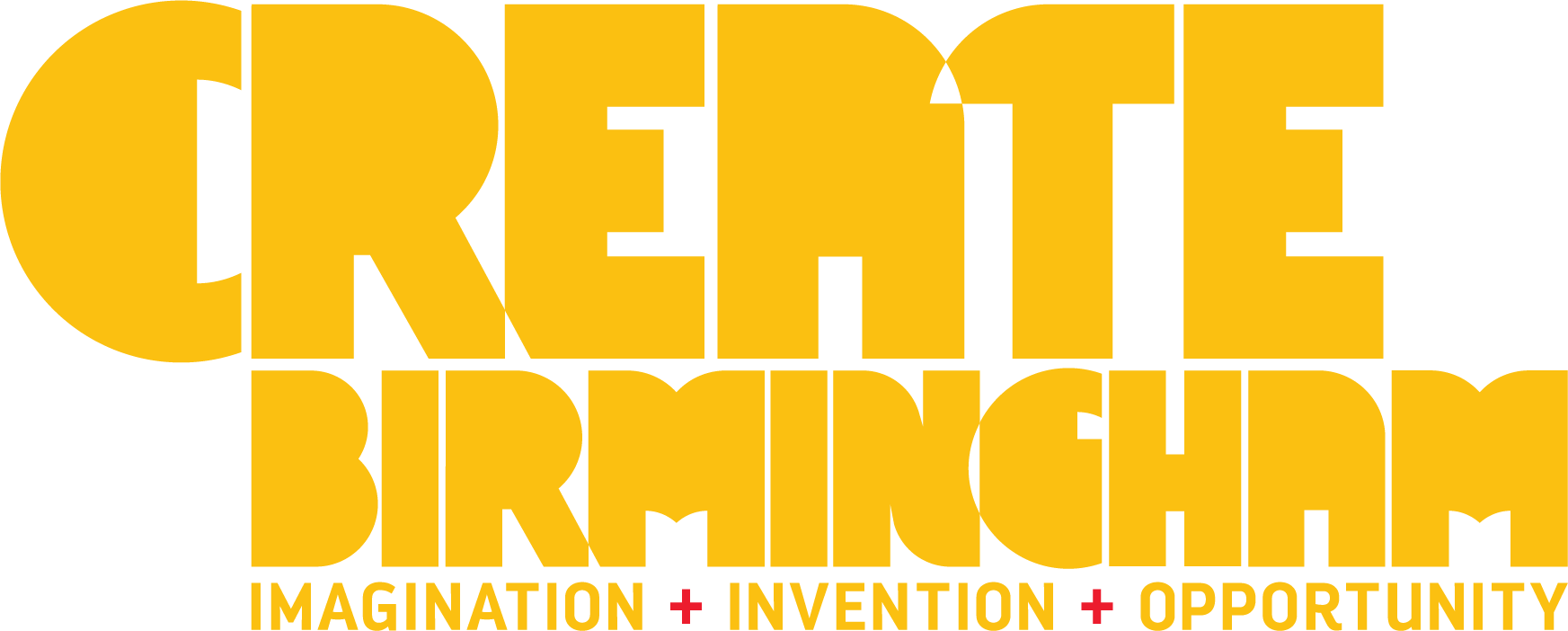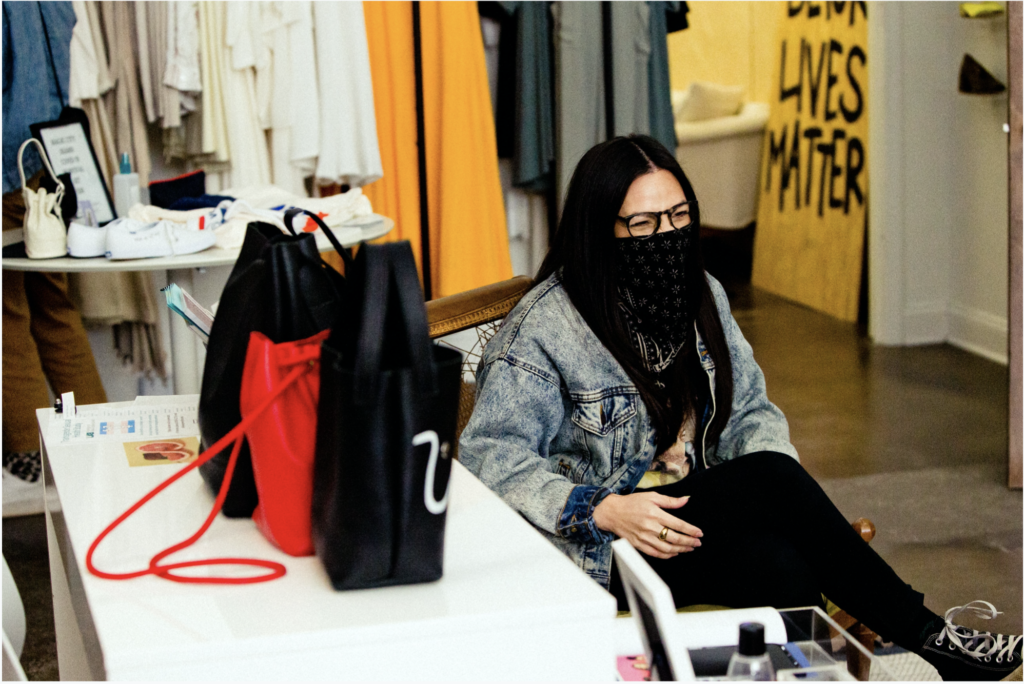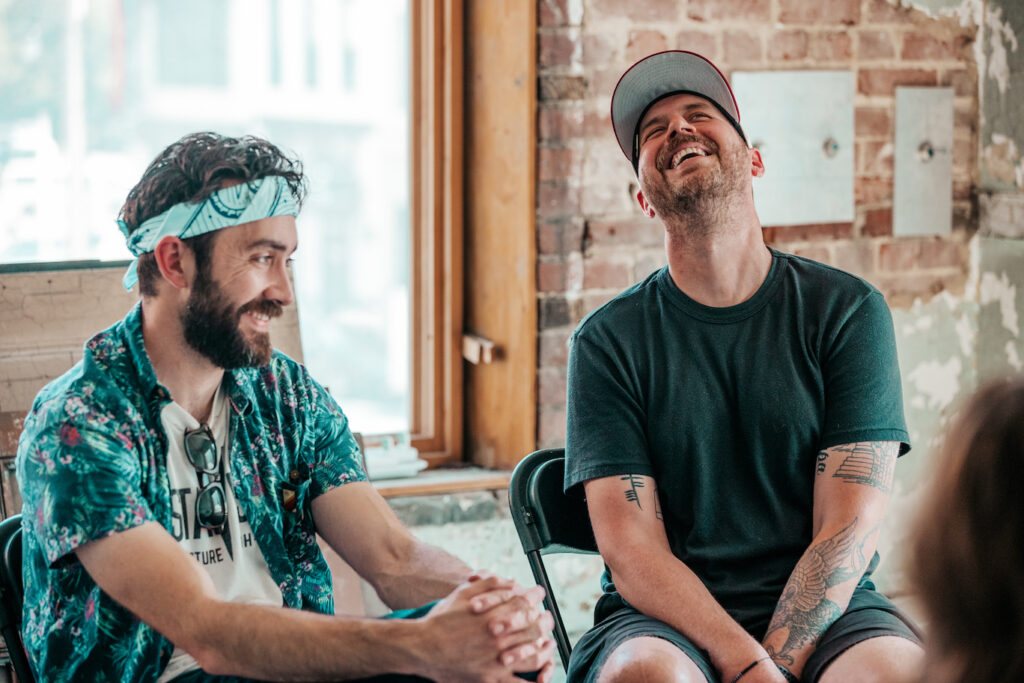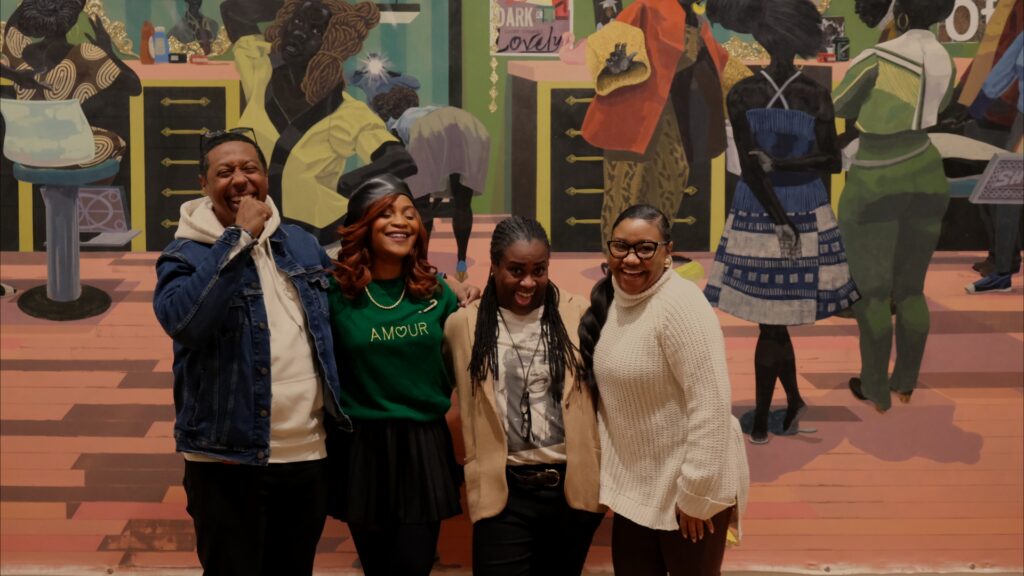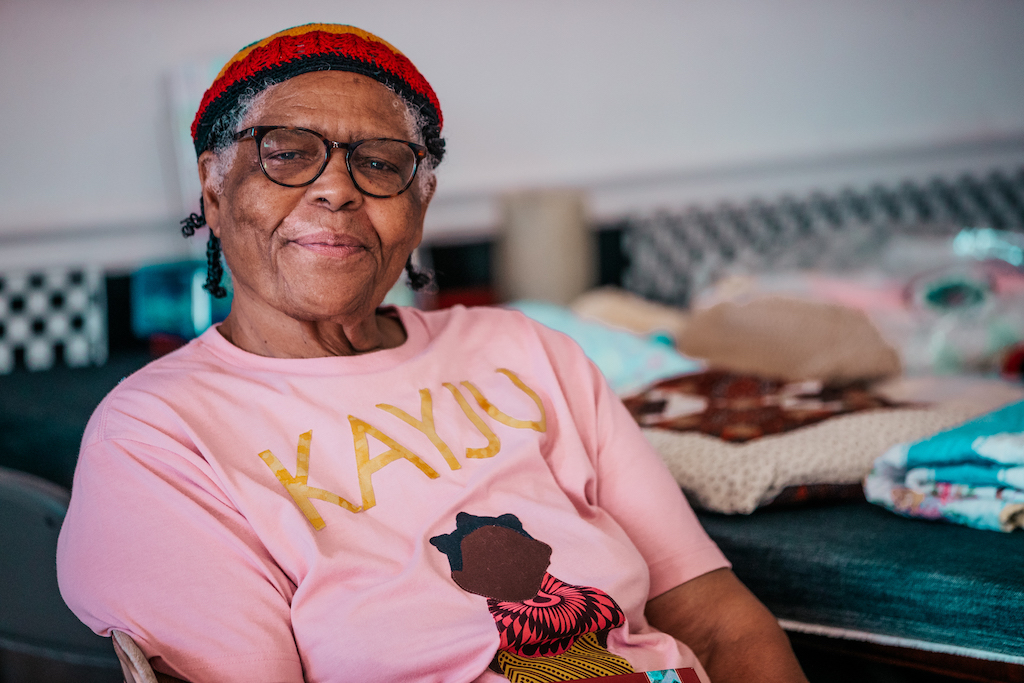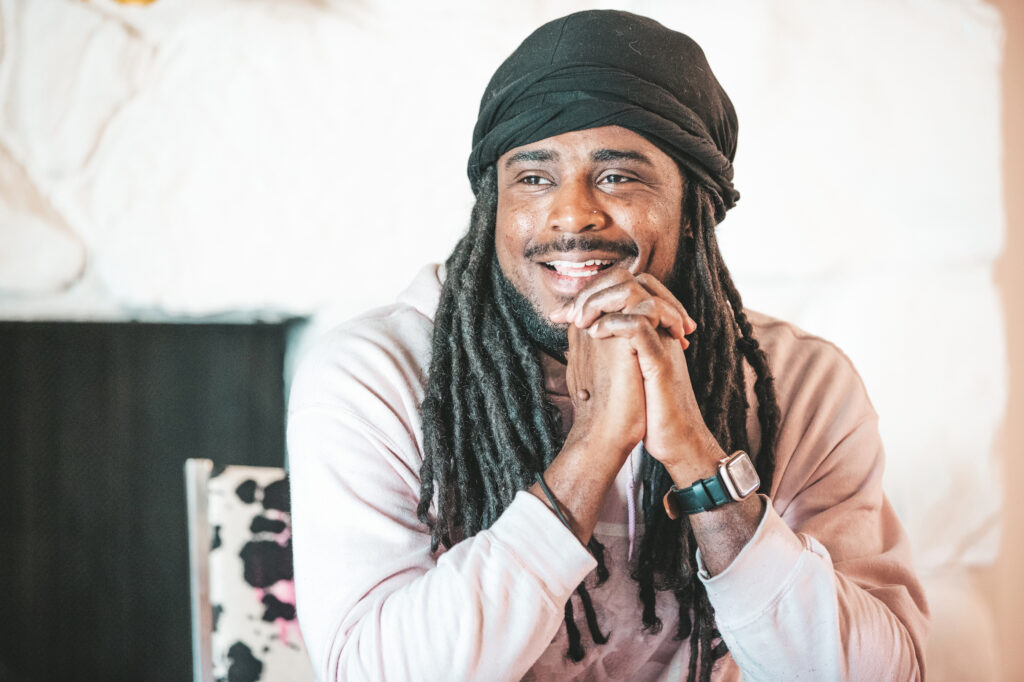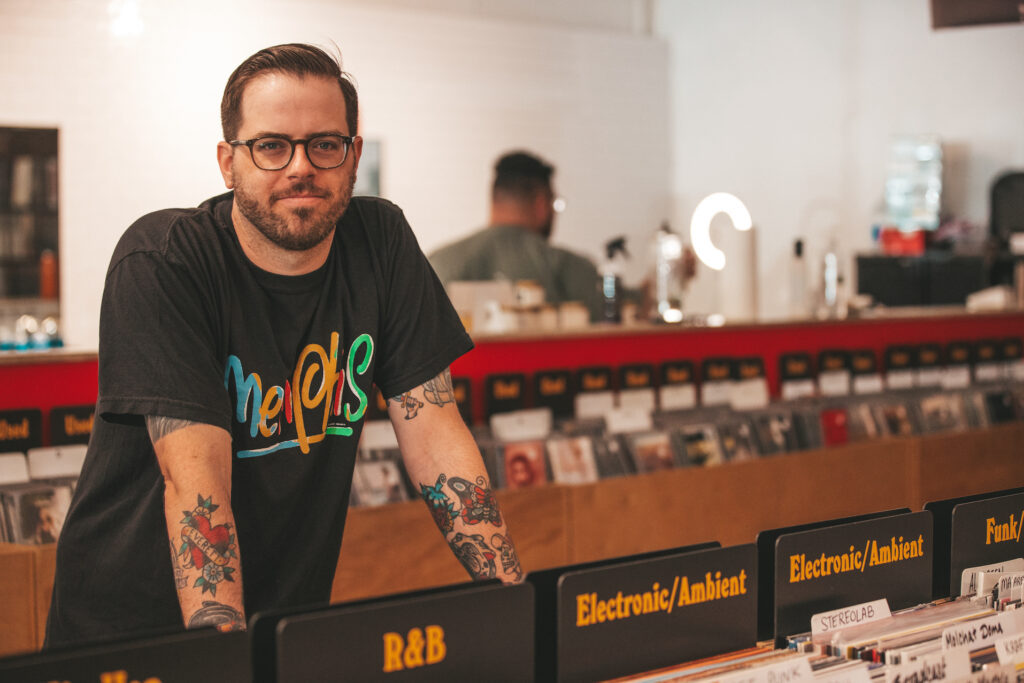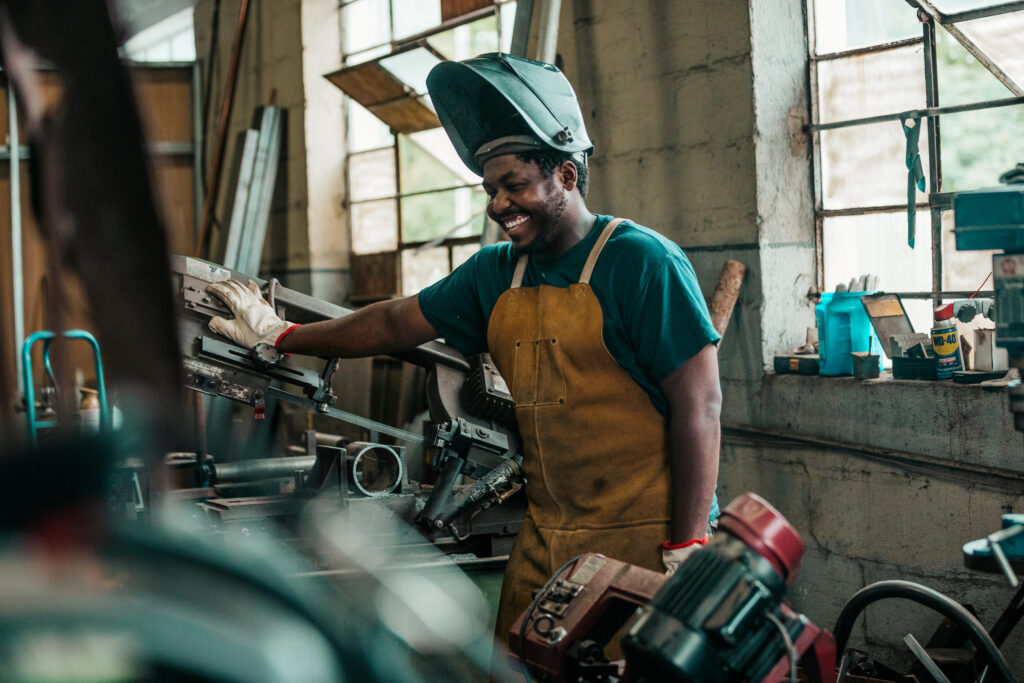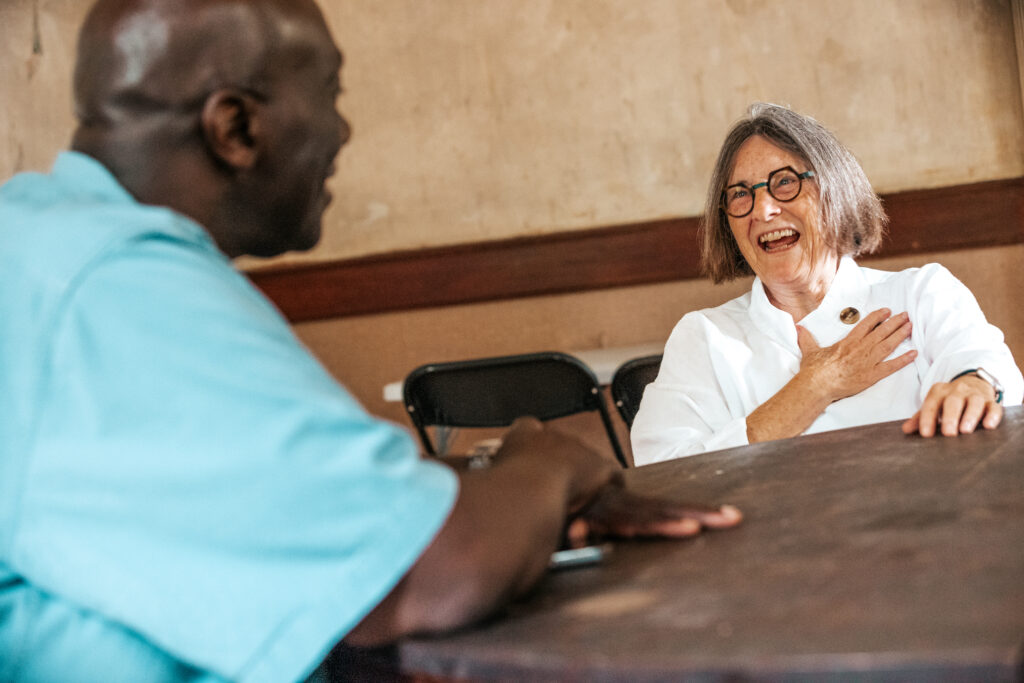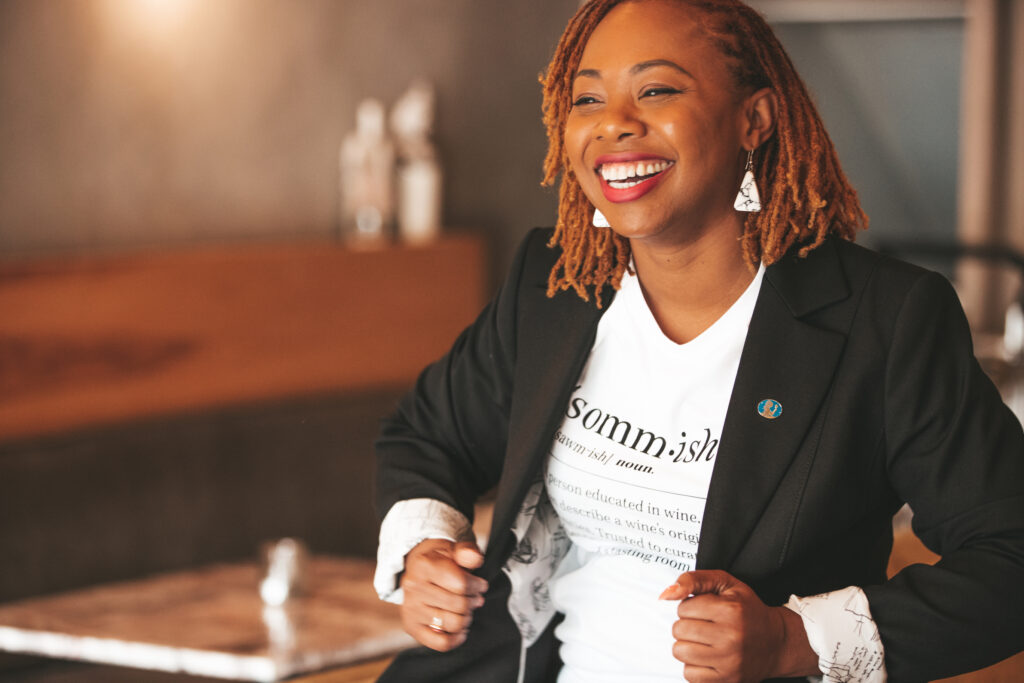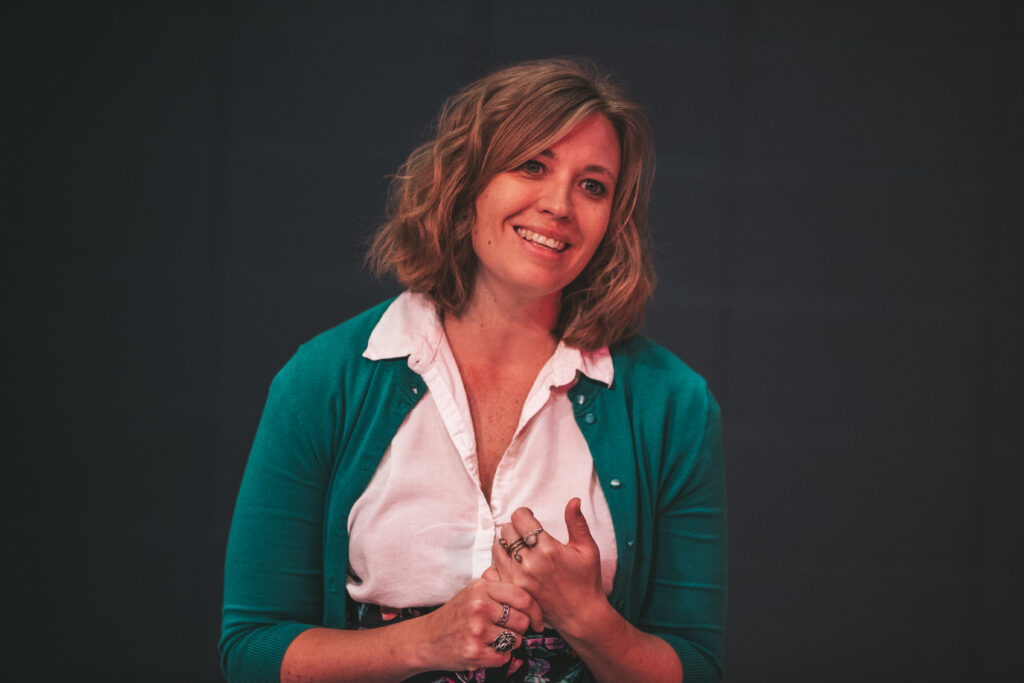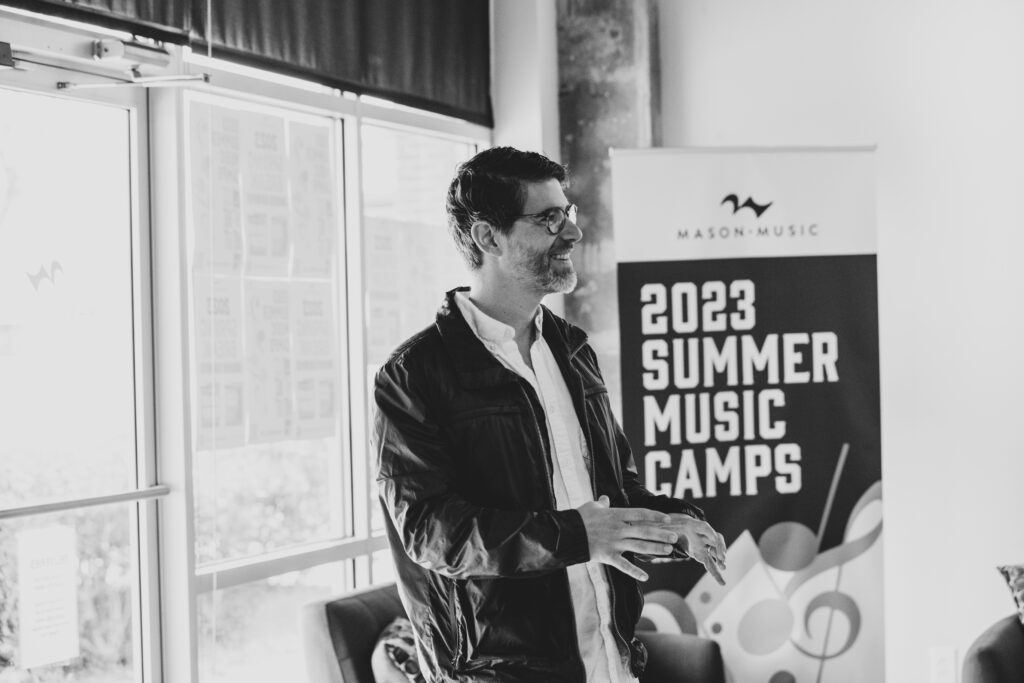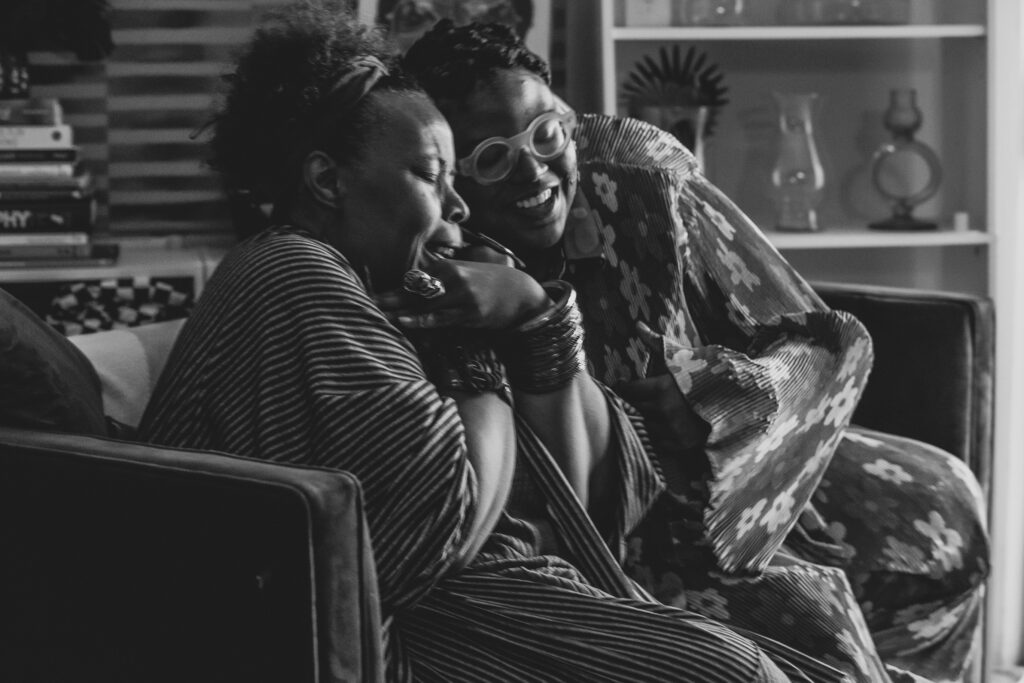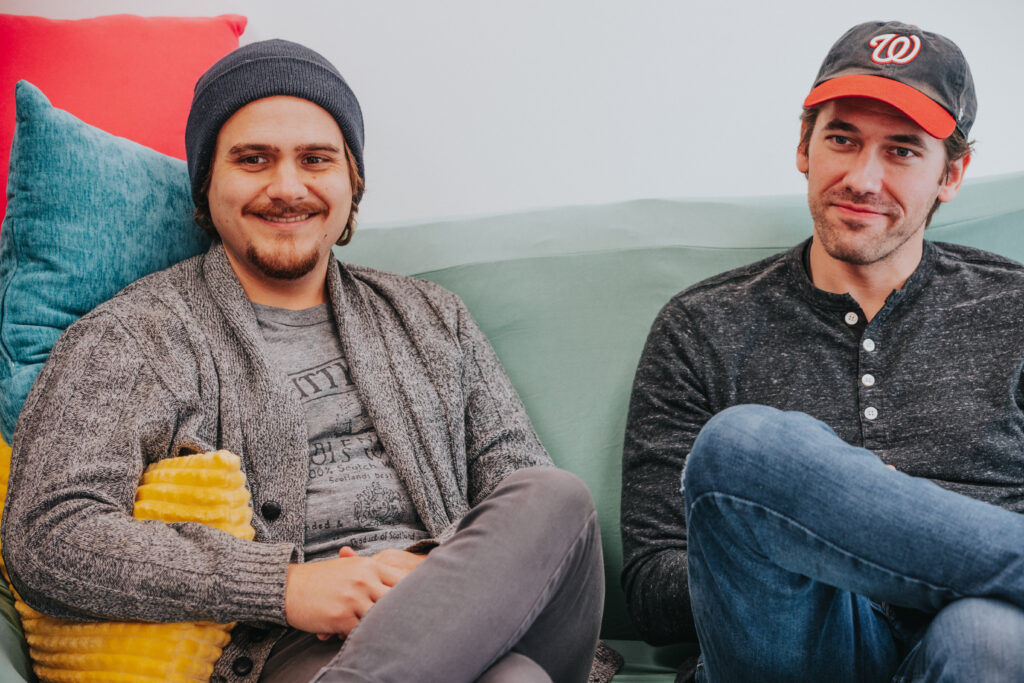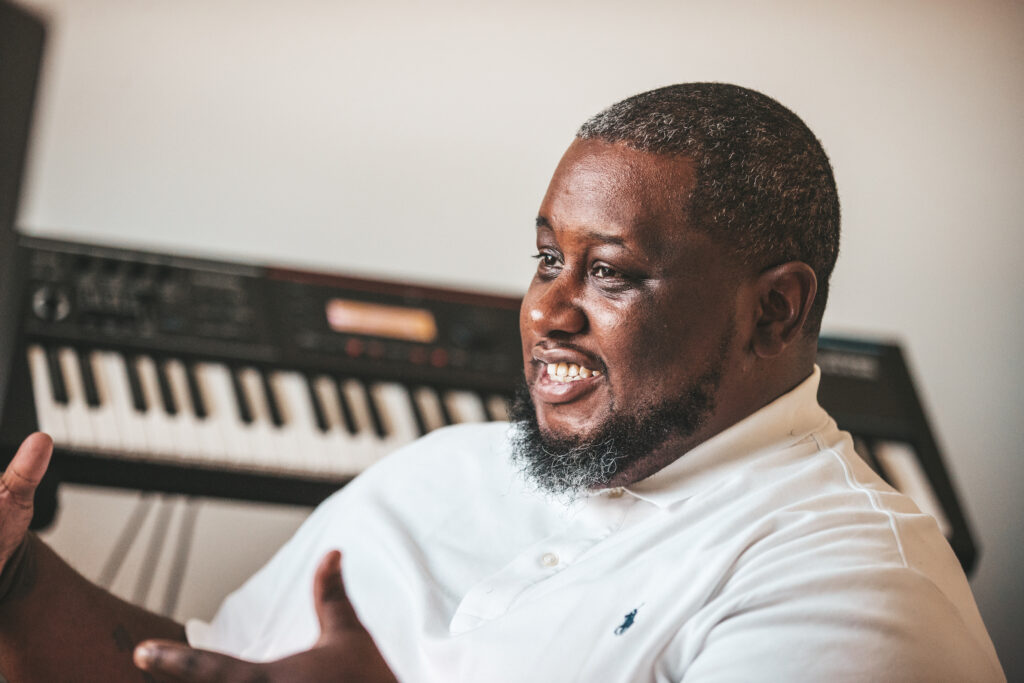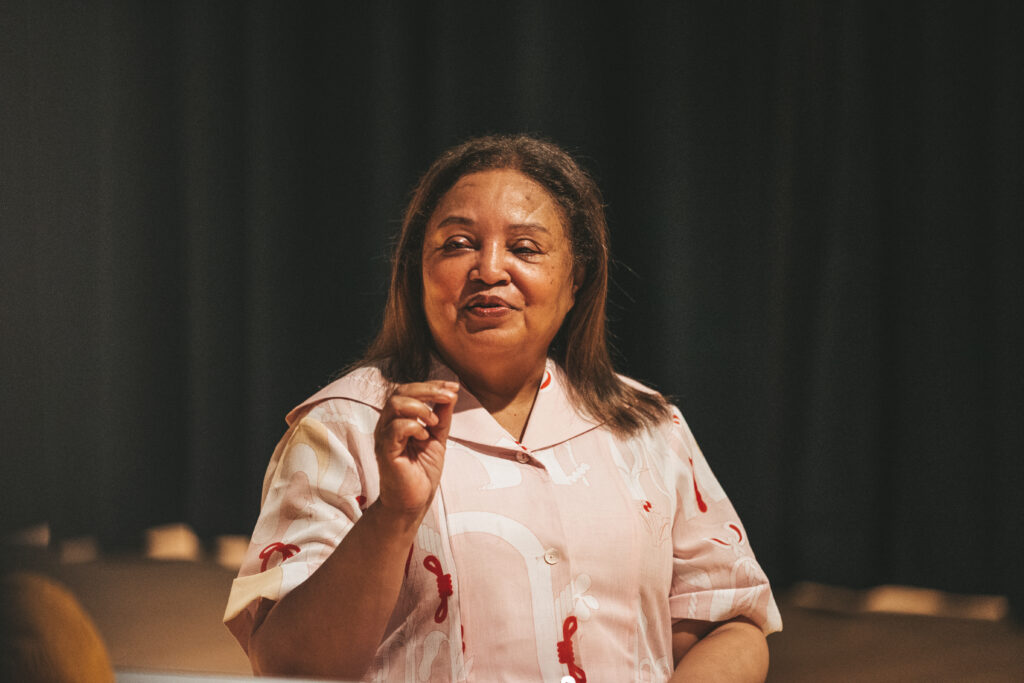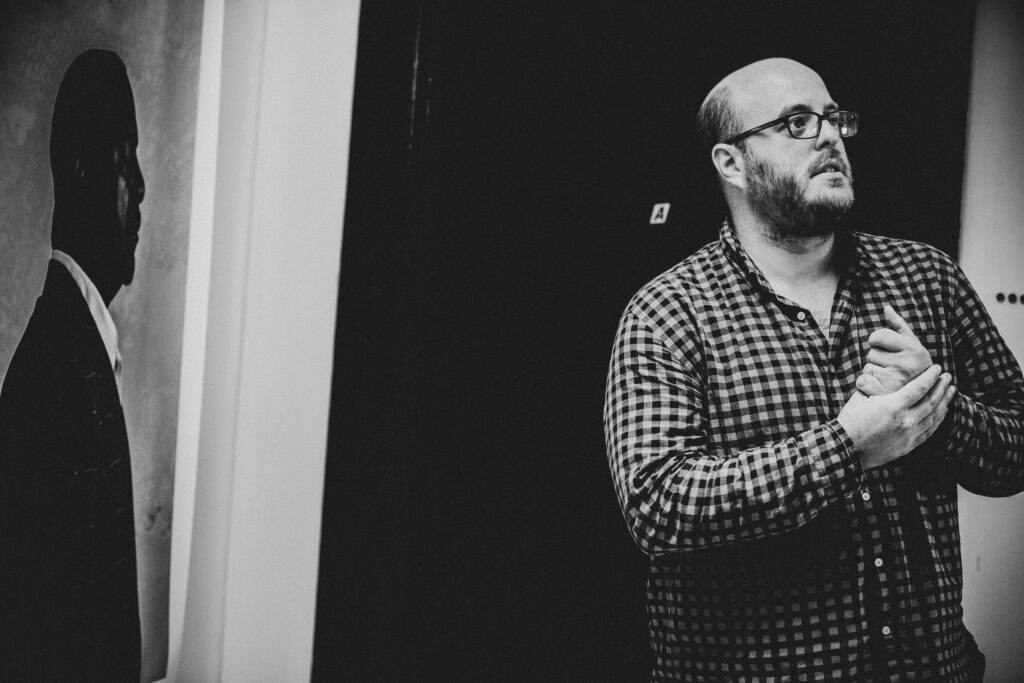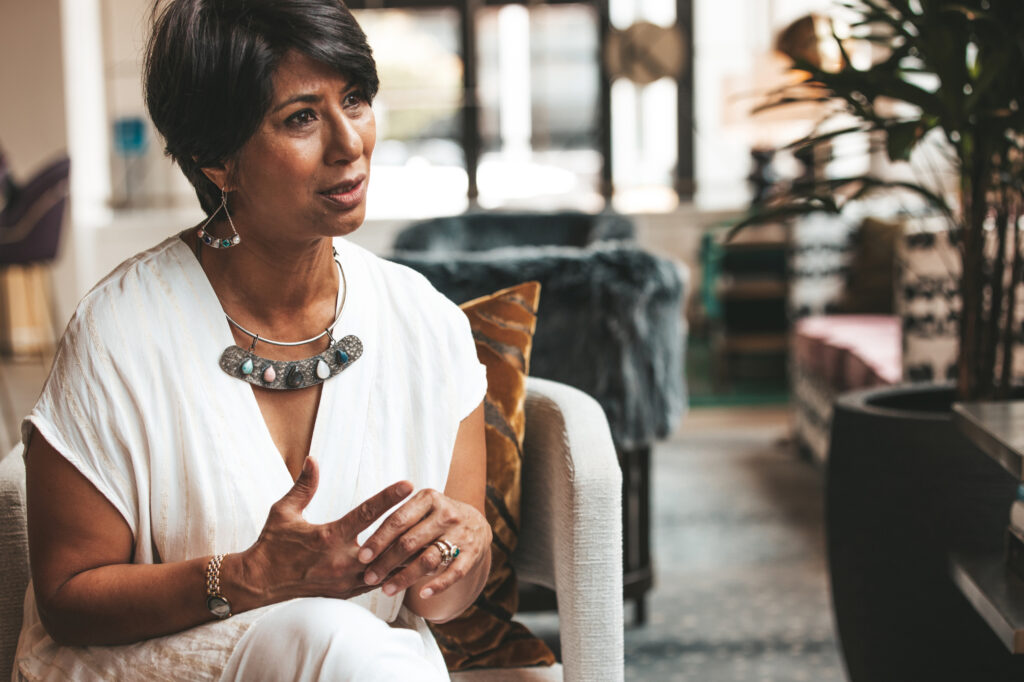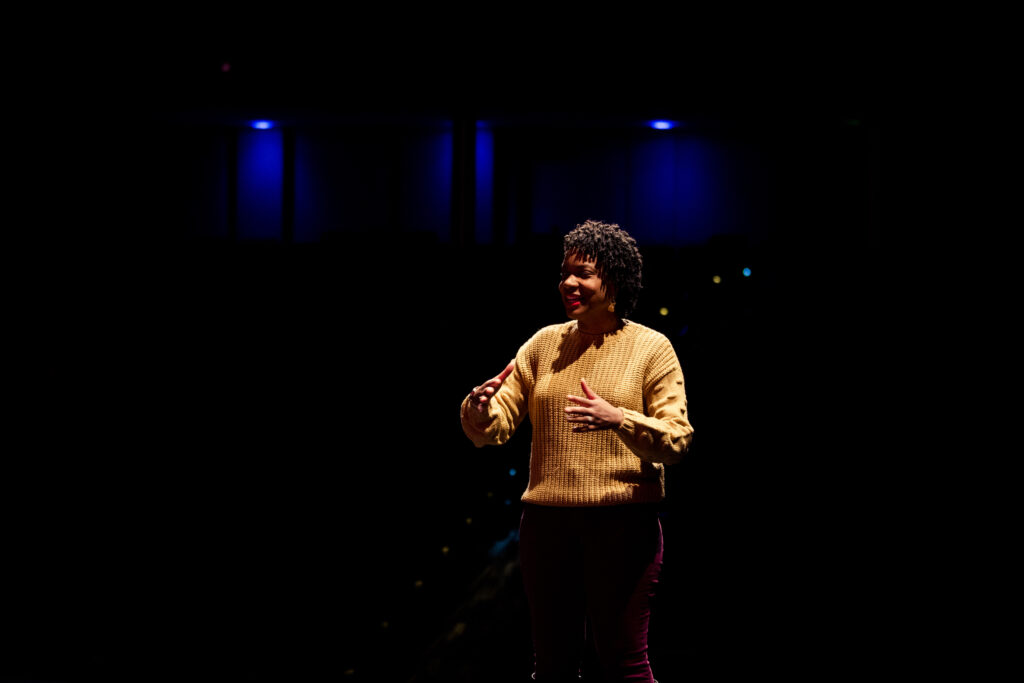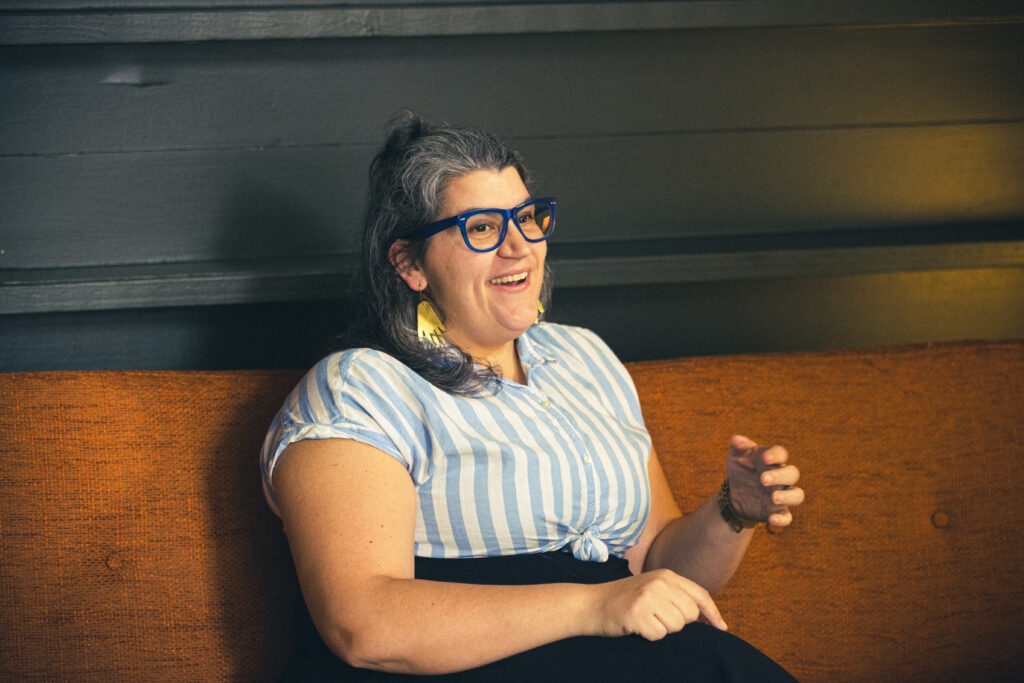Interview by Tonia Trotter
Photos by Ambre Amari
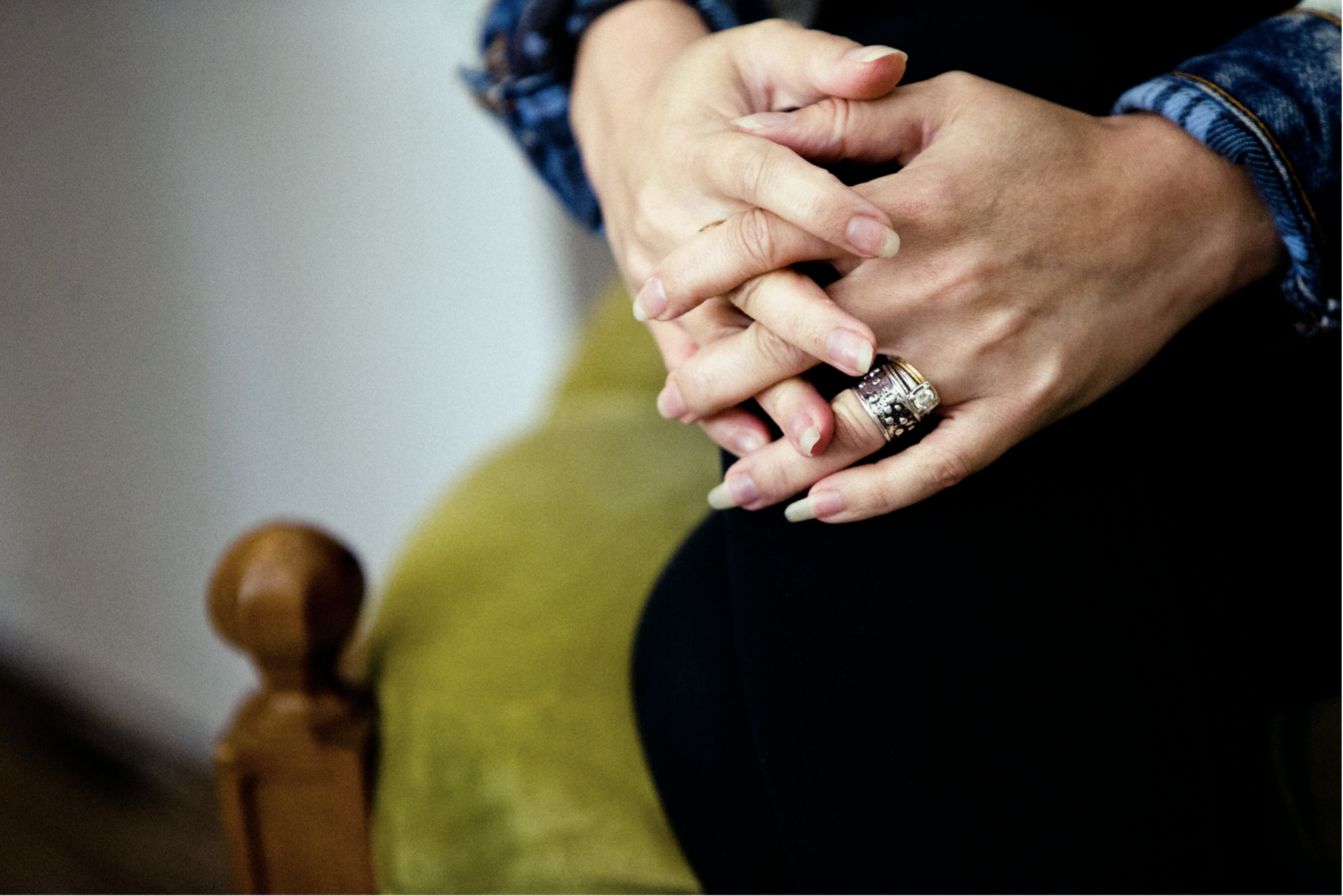 Talaya, you’re originally from Los Angeles. How did you come to call Birmingham home?
Talaya, you’re originally from Los Angeles. How did you come to call Birmingham home?
I was twenty-seven when I moved to Birmingham. I was having this “Eat, Pray, Love” year where I was unattached. I had been working for this fashion label in Beverly Hills, and I liked aspects of it, but I was craving something more purposeful. My sister was living in Birmingham, and she was working for a nonprofit that was hiring. I moved in January 2013 and met my husband, who was also working for the organization, while I was planning a kids’ camp. To me, men in LA had Peter Pan syndrome, and here was a man my age who knew what he wanted out of life and was working towards his vision. That was incredibly attractive to me. We started dating in April, were engaged three weeks later, and married by September. So what began as a year of adventure turned out to be forever.
Our city is steadily gaining recognition for its talent in film and fashion. As a native Angeleno, what sets Birmingham apart?
A year after I moved here, I was doing wardrobe and costume design on a movie set. That would’ve never happened in LA. There’s so much opportunity for those who want to take it — especially in the creative field. It almost feels like Birmingham wants you here, which is in contrast to how I felt in LA. Everything from parking to the cost of living, to navigating the city and easily finding my place has felt more accessible here.
Many consumers are becoming more conscientious about sustainability in the fashion industry. How did you marry your interest in fashion with your social awareness?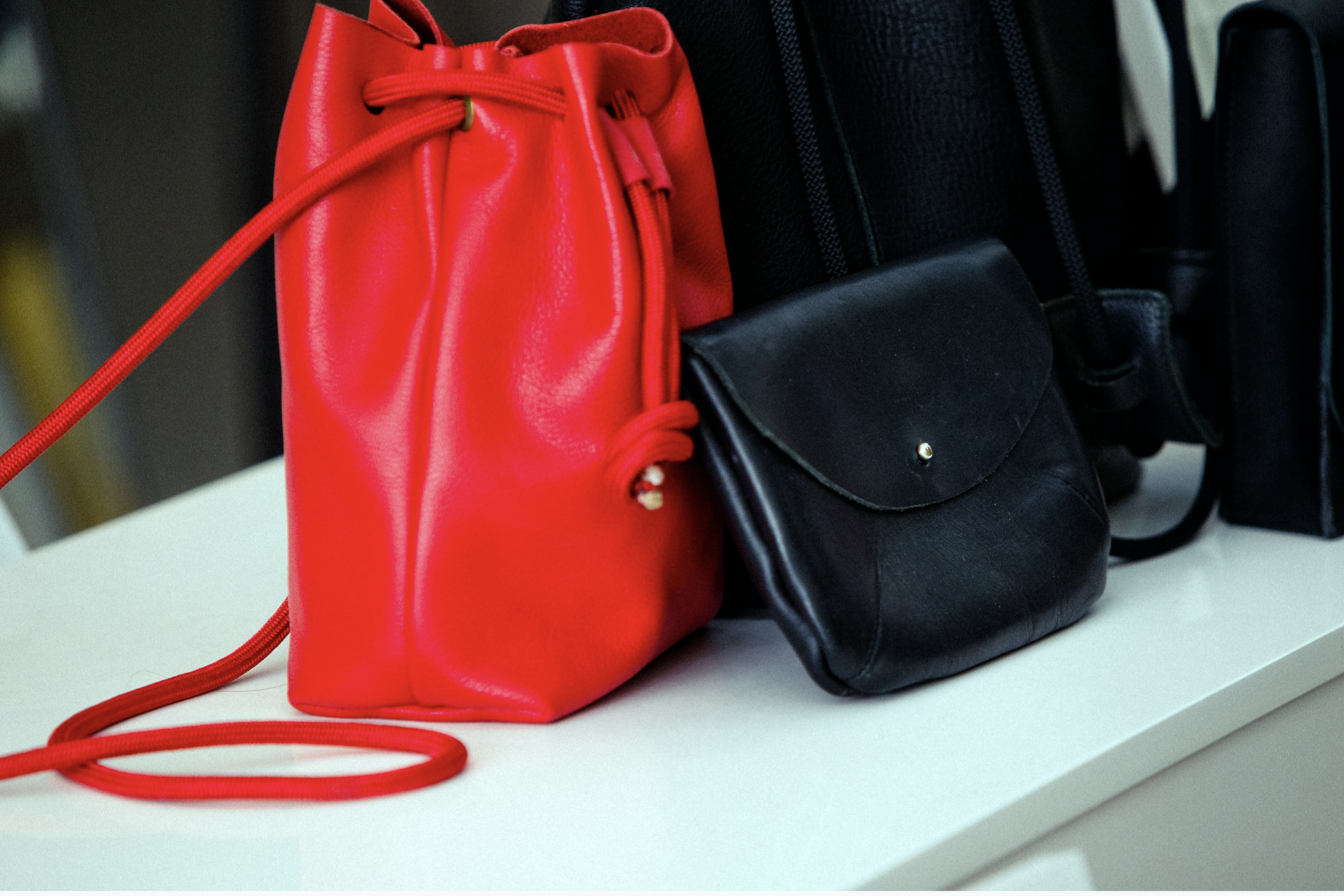
I’ve had a love of sewing clothes for as long as I can remember, but I didn’t do it particularly well. And I don’t think I always knew that it was called “social justice,” but I always sided with the underdog or the person I felt was being treated unfairly. When I was in LA, I was working with an organization at The Dream Center that was providing meals for homeless people on Skid Row. I would finish there and drive to Beverly Hills where I’d sell a Saudi Arabian princess $20K worth of designer clothes. That juxtaposition began to weigh on me over time.
When I began making leather goods, I wasn’t really thinking about sustainability or ethical fashion. I just thought that it might be something I was good at, and I wanted to try it. But the more I sat behind my machine every day, working for hours, I started to think, “How do big retailers do this — crank out bags that are lined with zippers and pockets — and charge $20?” I was buying the hides and making everything myself, and it just didn’t add up. That’s when I started to look into it a little more.
What are some of the steps you take to reducing your effect on the environment, and how does that translate in your design philosophy?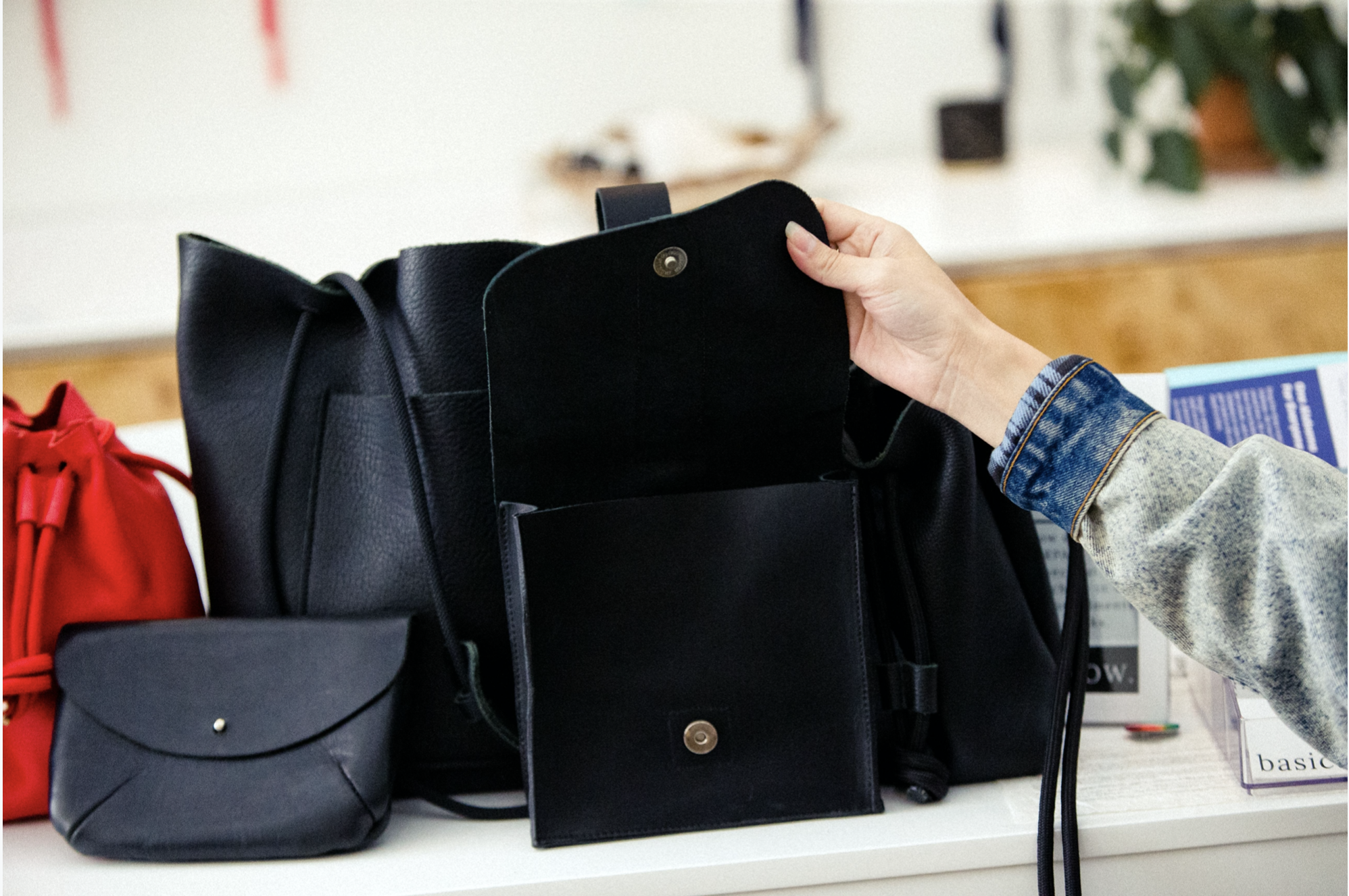
Creative entrepreneurs — especially females — often have a difficult time asserting the value of their work. Did you experience that at some point? What helped you to establish what your work was worth?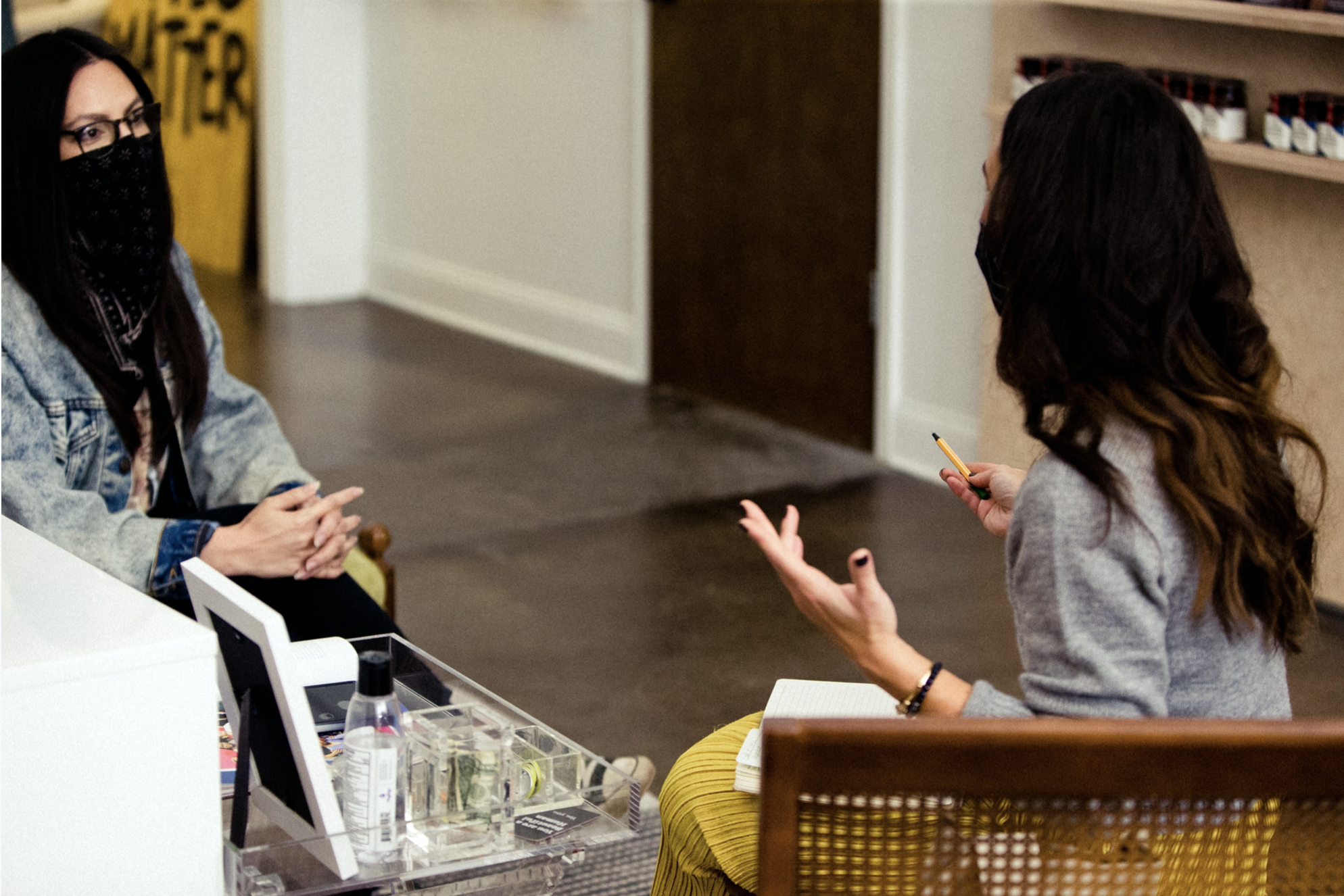
2020 has been a year of challenge for many makers and small business owners. But you experienced some personal hurdles as well — you were diagnosed with breast cancer. How did the events of this year shift your perspective?
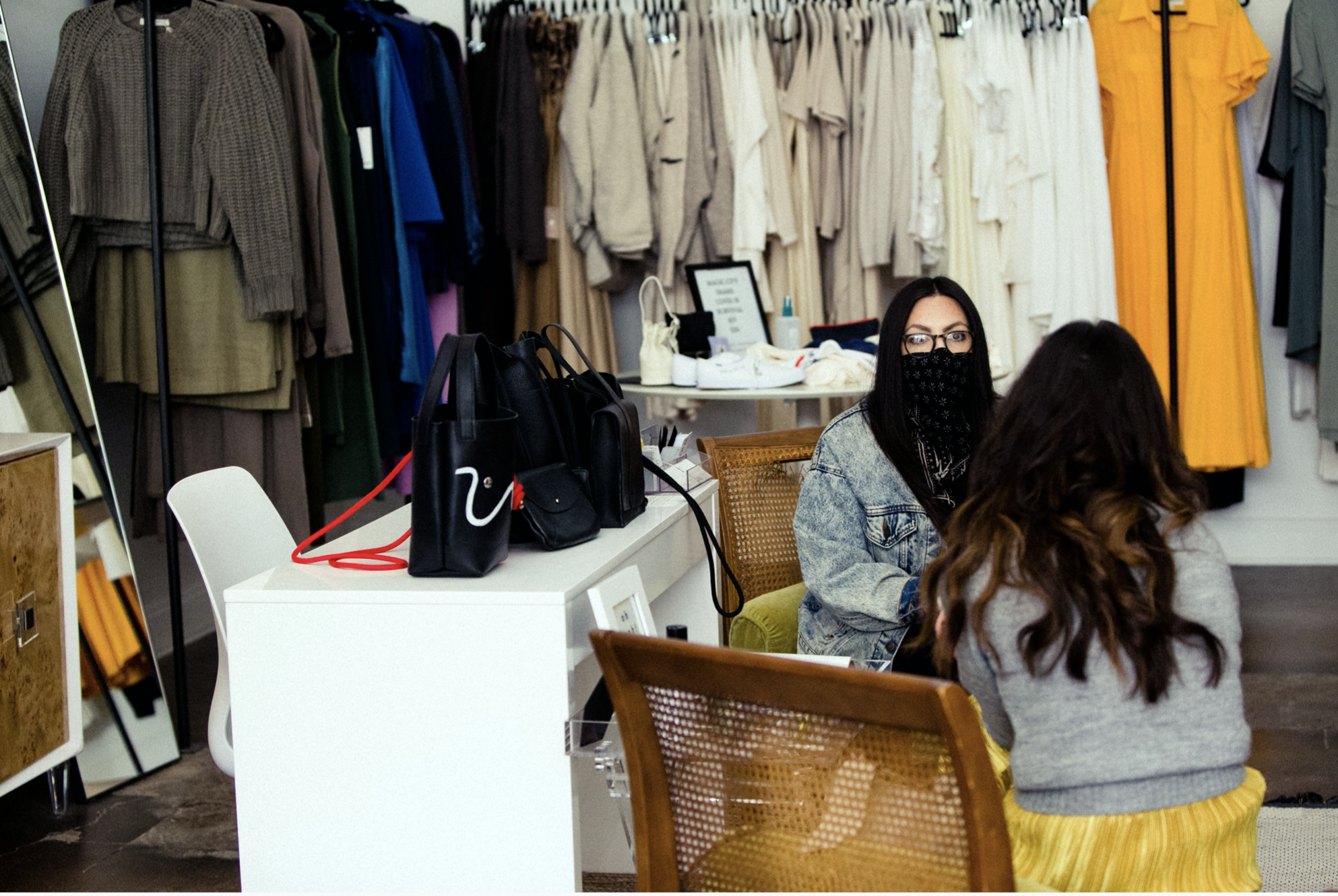 I had launched a new bag right as COVID became a part of our reality and vocabulary, and there was cricket silence. Eventually people began to shop again, but they weren’t shopping for bags, they were buying clothing and home goods. Retailers canceled their orders. So I decided to shift and focus on mask production. Somewhere in the middle of all that, I discovered a lump in my breast. Like a lot of women, I have fibrocystic breasts, so lumps aren’t unusual for me, but this one didn’t go away on its own. I went to the doctor, and in May I got the call that it was cancer.At that time, business was a little dead, so I thought it was the right time to step back and figure out what I needed to do. I kept everything quiet until after my surgery. It just felt so private, and I didn’t want any outside voices. I was fortunate in that I discovered everything at such an early stage, but it was widespread enough that I was going to lose my entire breast.
I had launched a new bag right as COVID became a part of our reality and vocabulary, and there was cricket silence. Eventually people began to shop again, but they weren’t shopping for bags, they were buying clothing and home goods. Retailers canceled their orders. So I decided to shift and focus on mask production. Somewhere in the middle of all that, I discovered a lump in my breast. Like a lot of women, I have fibrocystic breasts, so lumps aren’t unusual for me, but this one didn’t go away on its own. I went to the doctor, and in May I got the call that it was cancer.At that time, business was a little dead, so I thought it was the right time to step back and figure out what I needed to do. I kept everything quiet until after my surgery. It just felt so private, and I didn’t want any outside voices. I was fortunate in that I discovered everything at such an early stage, but it was widespread enough that I was going to lose my entire breast.
At a time where it would be understandable to focus on what you’ve lost, you talk about what you gained — confidence in advocating for your own health and inspiration. Can you elaborate?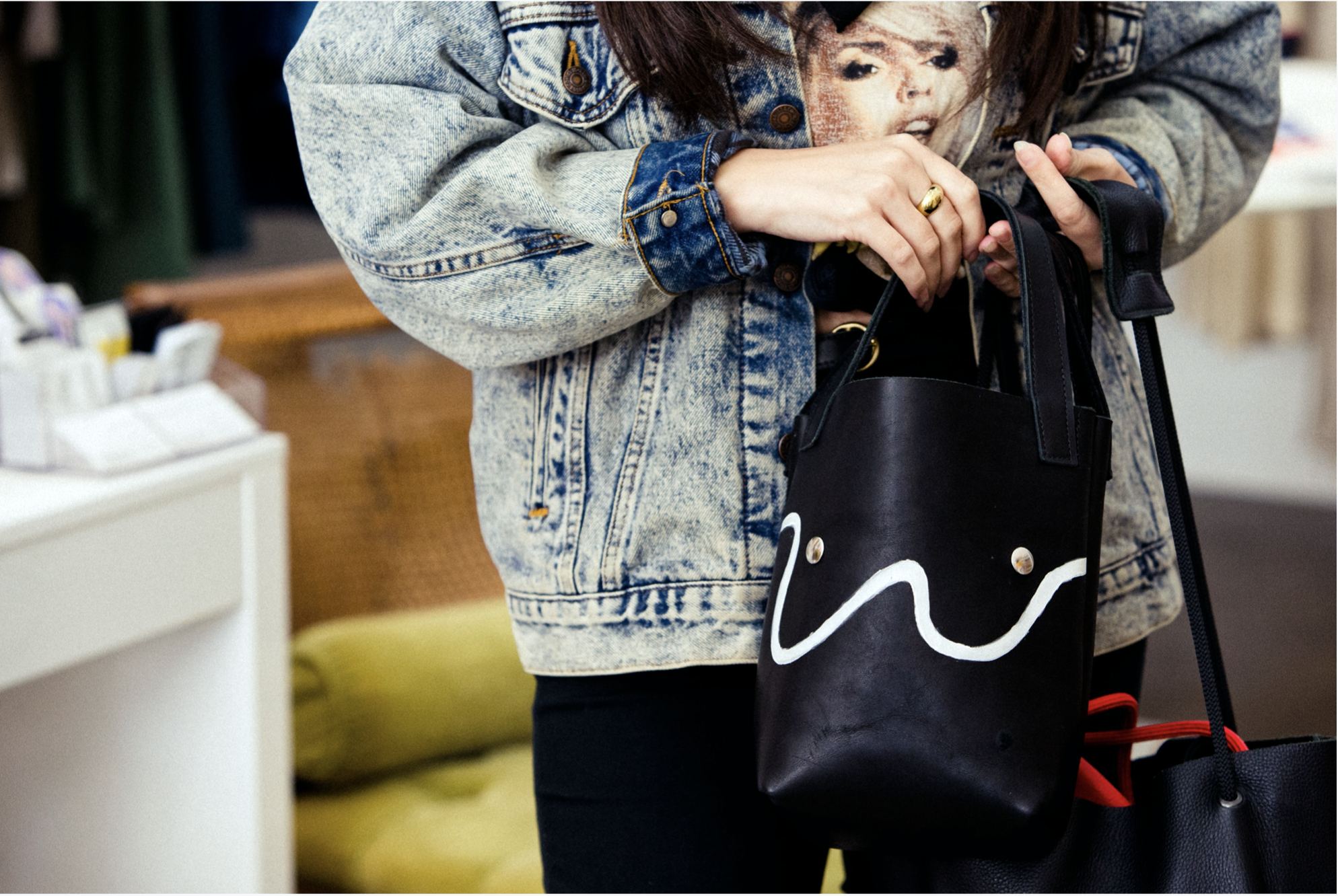
There were so many decisions to be made quickly, and I’m tend to be very timid when it comes to people who I feel have authority, such as doctors. I was proud that this was the first time I ever advocated for myself — for my health and also meeting with plastic surgeons about reconstruction. I felt like I got a lot of pushback for not wanting to have a double mastectomy because they were concerned with symmetry and aesthetics — which is their job. I had to weigh the worry of developing cancer in my other breast with how I wanted to experience my day to day life in my own body and with my intimate relationship with my husband. I feel fortunate that there are current healthcare policies in place that protect me in case I decide later that I want to go through with having my other breast removed and reconstructed. But, for now, this is the right decision for me.
I’ve designed a bag inspired by this experience, and I’m still making sure it holds up before I officially launch it in 2021. It’s called the “boobie bag,” and a portion of the proceeds will benefit breast cancer research.
During your break in production, you have been blogging to maintain connection with your customers and as a form of creative expression. You write about your Mexican heritage and embracing Latinx beauty. How has your personal experience influenced the purpose behind your work?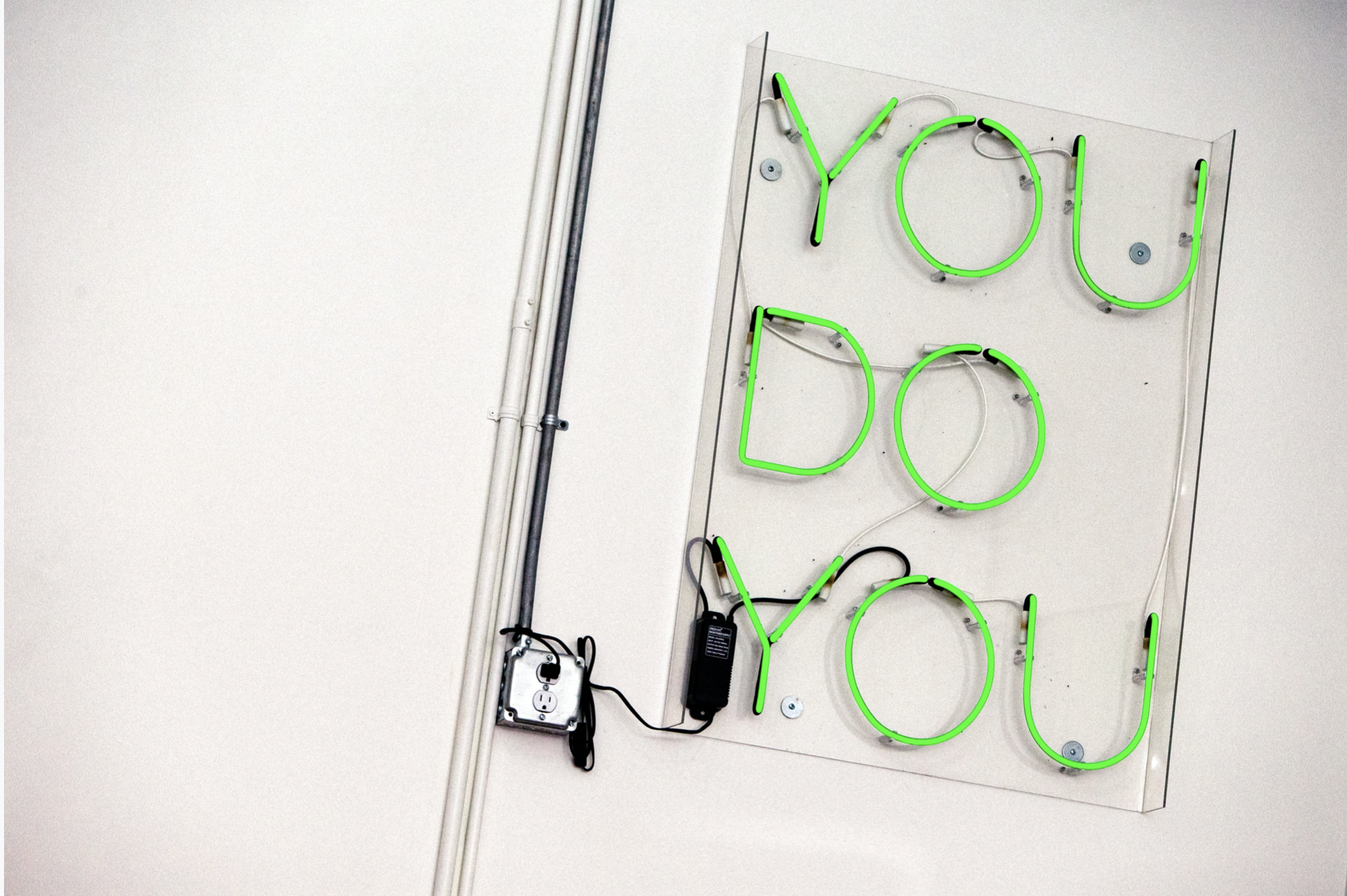
Sometimes, I feel like a lone voice in Birmingham. In LA, Mexicans are the majority, so I never felt out of place. My dad experienced racism growing up, and I think he wanted to protect me from that, so he was adamant about “Americanizing” us. Although my parents and my grandparents spoke Spanish, I didn’t grow up speaking Spanish in our home. In fact, it’s something I really hope to learn now, but it’s difficult to master a different language in your 30s. I know I look kind of ethnically ambiguous, and I guess even have been considered “white passing.” I remember an instance when someone asked me about my ethnicity, and when I told him I was Mexican, he said, “Oh, no. You can just say ‘Latina.’” Not speaking Spanish, I sort of felt like I didn’t know where I belonged — and, in a way, like I was denied my heritage. But I also didn’t grow up in a white household, so I had this sense of alienation.
There is a lot of work to be done in how society views Latinx women. On average, we are the lowest paid minority women. People box us into the roles of housekeeper or cook. I asked myself, “Could I do what I do without bringing my ethnicity into it?” The answer is yes, but I want to be a part of changing that mindset. I’m a Mexican fashion designer.
You changed the name of your line last year. What was behind that decision?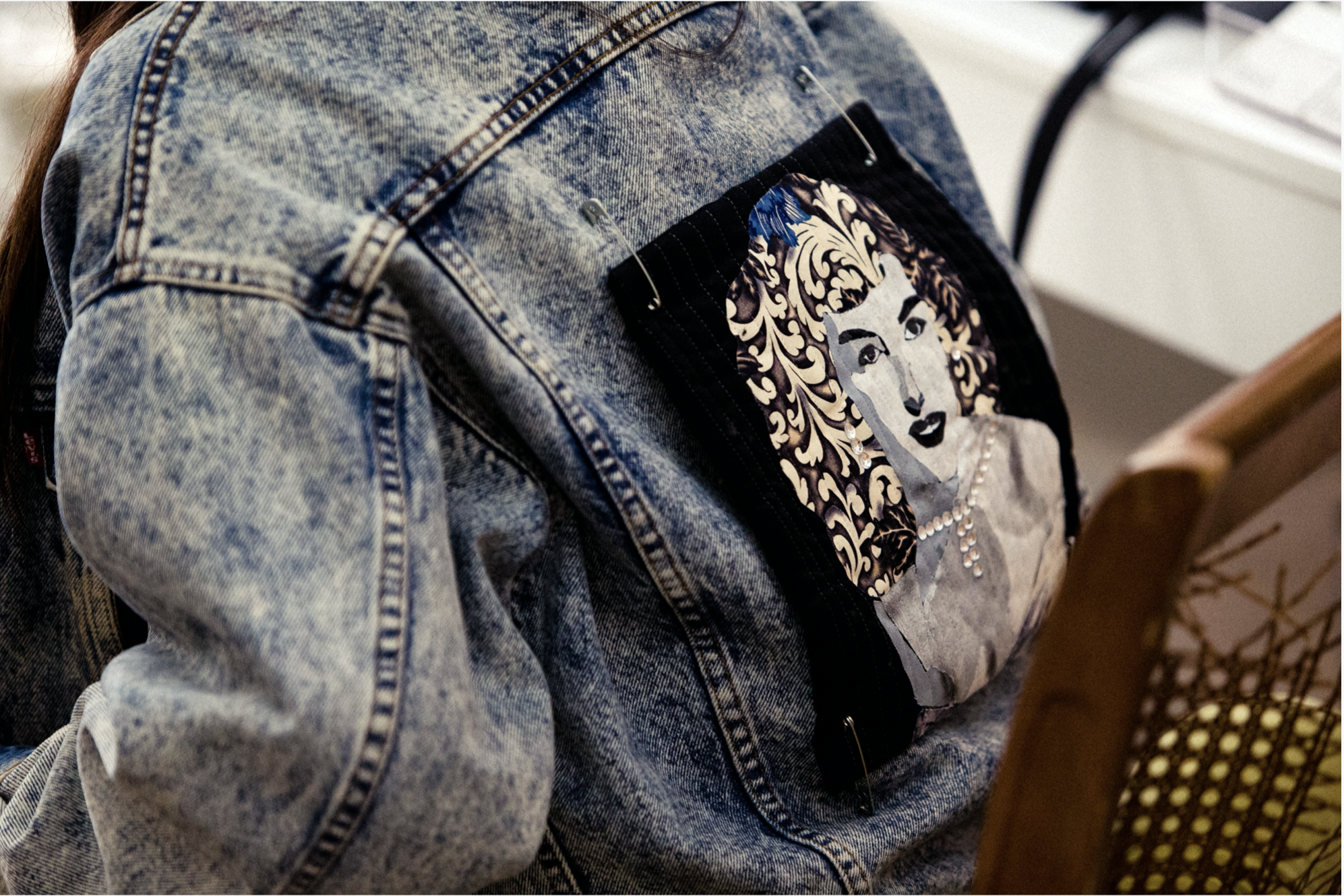
I rebranded and named my line after my grandmother Elidia. She was such an inspiration to me. She had a unique, rebellious sense of style and was just super cool. Most of my family has lived in California for generations — since it was a part of Mexico. Elidia grew up between Mexico, California, and Arizona and was a single mom of two girls. By day, she worked for Lockheed Martin, soldering wires for fighter jets. At night she would clean office buildings, and on the side she was also a fashion designer. She owned a boutique in LA for a little while called A Touch of Class. She made all of her own clothes, including her signature look — a sheer camisole under a sheer shawl and really lacy pushup bras for everyday wear! Her house was so artsy and different, and she always had these creative, interesting friends!
There was a mass shooting in an El Paso Walmart in 2019 that really affected me. The shooter was convinced that Mexicans were taking over the US, and he targeted anyone who he thought looked Mexican. I couldn’t help but wonder if I had been in that Walmart, would I have looked white or Mexican to that shooter? That’s when I decided my heritage needed to be on the forefront of my brand. I was born and raised here, and I’m a valuable part of this country. So was my grandmother — she helped build American fighter jets for goodness sake! I wanted to honor her and change how Mexican women are viewed.
